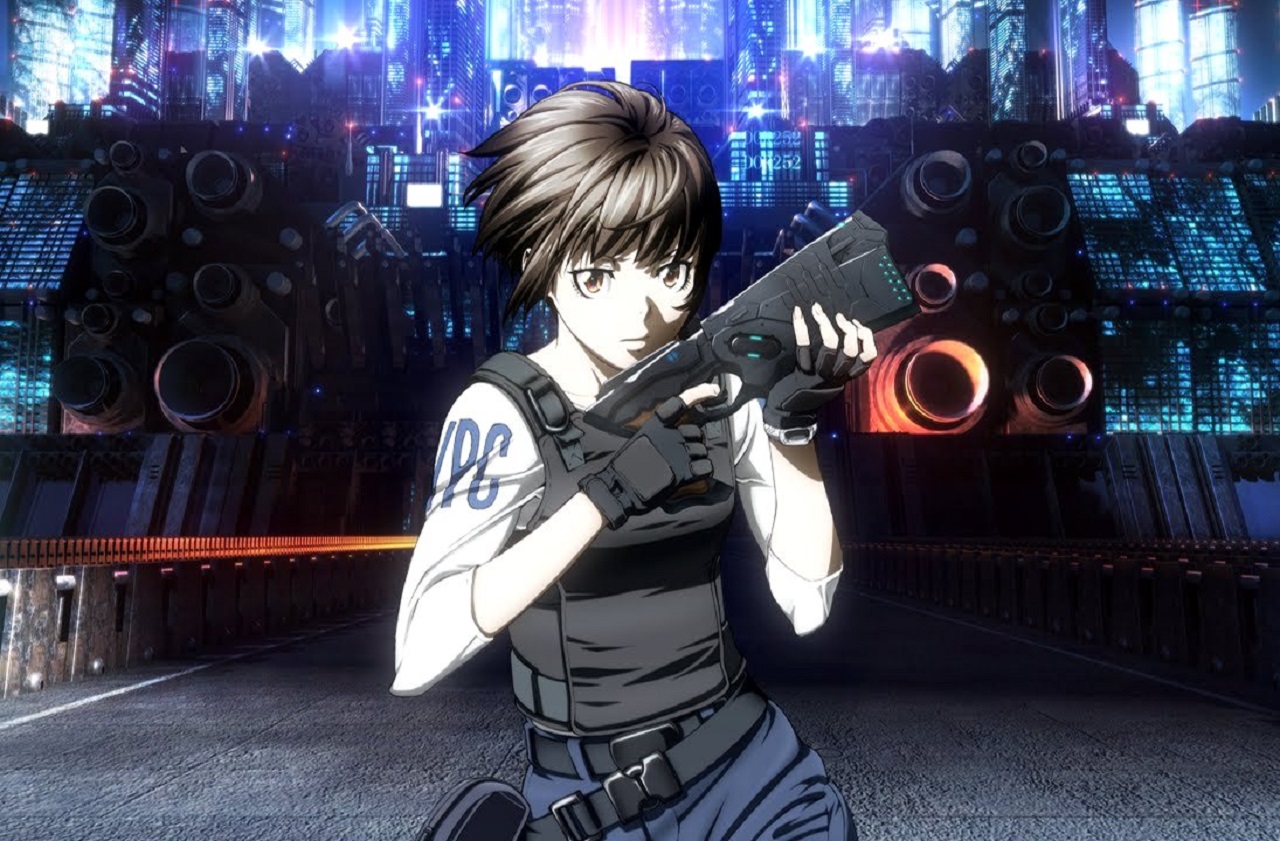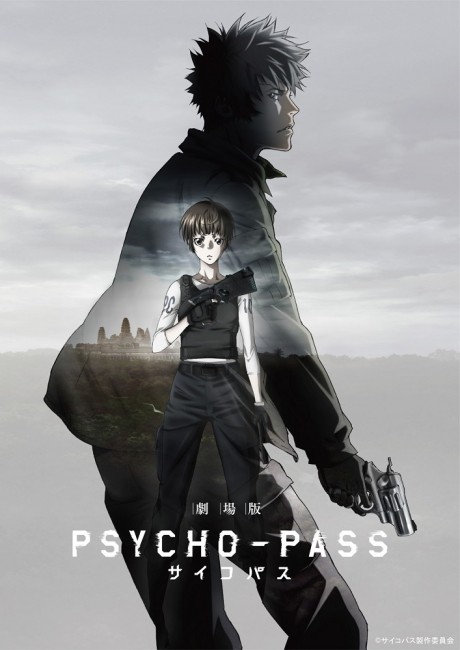aka Psycho-Pass: The Movie
(Gekijouban Psycho-Pass)
Crew
Directors – Katsuyuki Motohiro & Naoyoshi Shiotani, Screenplay – Makoto Fukami & Gen Urobuchi, Story – Gen Urobuchi, Producers – Akitoshi Mon, Fumi Morihiro, Masaya Saitou & Kenji Tobori, Photography – Eiji Arai, Music – Yuugo Kanno, Production Design – Shuichi Kusamori. Production Company – Dentsu Inc/Fuji Television Network/Kyoraku Industrial Holdings Co.,Ltd./Nitroplus/Production I.G./Sony Music Entertainment Japan/Tatsunoko Production.
Plot
It is the year 2116. Japan is the only country in the world at peace while all others are at war and in chaos. This is due to Japan’s having adopted the Psycho-Pass, which uses the Sibyl system that monitors the brains of the populace for the potential to commit crime. When an individual’s Crime Coefficient goes into the red, the subject is apprehended or terminated by the Public Safety Bureau. After attempts by foreign terrorists to infiltrate Tokyo are thwarted, Public Safety Bureau Inspector Akane Tsunemori learns that they come from Shambala Float, a country where the Sibyl System is being trialled, and that her former partner Inspector Shinya Kogami has joined the insurgent forces the government of Shambala Float are fighting against. Akane flies to Shambala Float to investigate. She insists on joining a heavily armed tactical unit as they head into the ruins to tackle the rebels. After seeing Kogami leading the attack, she flees the safety of the armoured vehicle to talk to him. Among the rebels, she makes the discovery that the government of Shambala Float has managed to subvert the Sibyl System and uses it to maintain their war against political outsiders.
Psycho-Pass (2012-4) was a popular anime tv series from Production I.G. The series first appeared in a self-contained 22 episode run between 2012-3. It centres around Akane Tsunemori, a new recruit to the Public Safety Bureau in 22nd Century Tokyo. Somewhat reminiscent of Minority Report (2002) and tv’s Person of Interest (2011-6), the city is managed by the Sibyl System that calculates the Psycho-Pass of every individual – a brain-monitoring process that assesses the Crime Coefficient, the percentile tendency of every citizen towards criminal activity. The series’ first run was very popular, leading to a second series in 2014 and several spinoffs that include a manga, a series of light novels and a videogame. This culminated in this theatrically-released film, which comes from the same writing and directing team as the tv series.
I had not seen the Psycho-Pass tv series prior to sitting down to watch the film. This proves somewhat of a disadvantage as the film is one that is made for the fans of the series, not designed to open the universe up to new people. As I was watching, I was having to constantly consult the Wikipedia page for the series to find the meaning of various terms used and what the relationship between the characters is – it would not be easily gleaned by the casual sampler, for instance, that the insurgent Kogami was actually the secondary lead and one of the inspectors at the Public Safety Bureau in the series. I felt I was spending more time trying to work out what the world was about during the initial sections than I was investing in the drama of the show.

I looked forward to Psycho-Pass: The Movie as another venture into the gritty Cyberpunk anime as patented by works such as Ghost in the Shell (1995) and many others that have derived from it. Even though Psycho-Pass: The Movie is not uninteresting, I felt somewhat disappointed in that expectation. The world that the series creates is filled with possibilities. The latter half develops out a strong and interesting political scenario where you feel that the filmmakers are trying to make an analogy to some world events even if you can’t place your finger on what. These scenes are well written – if nothing else, you have to commend the film as being surely the only anime ever to namedrop the works of Marcel Proust.
When we entered into the military combat zone, I kept expecting the film to open up into something akin to Shinji Aramaki’s amazing Appleseed (2004) with its awe-inspiring scenes of combat between hi-tech tanks and battlesuits. The film starts to head in this direction but never fully gets there. You would have to say that the action sequences are okay but fail to fully hold the wow that you expect them to. One of the downsides of the film is also that some of the dialogue comes in English – no problem with that, except that it is being spoken by people who are not native English-language speakers and comes out as very stilted and awkward.

